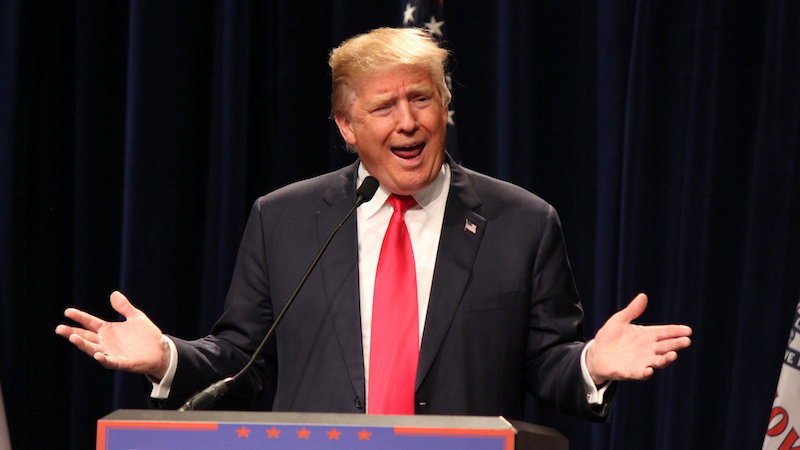After months of chaos and uncertainty in the US state department, the first glimmers of a climate diplomacy strategy appeared this week.
A leaked note from secretary of state Rex Tillerson to embassies quashed speculation that the US is seeking to re-write the text of the Paris climate deal – a prospect other world leaders had firmly rejected.
Instead, it said Donald Trump’s administration was open to “potential re-engagement” with the pact “under more favorable terms” in future. That implies weakening the US commitment, but not fundamentally altering the framework of global climate cooperation.
It followed a letter from the US ambassador Nikki Haley to the UN’s Antonio Guterres re-iterating Trump’s intention to pull out of the Paris Agreement.
Amid the noise, remember that the US has not left the pact – and may never do so, if a politically agreeable show of compromise can be found.
Inconvenient science
Meanwhile, the administration is due to publish a report by scientists from 13 federal agencies that finds ample evidence human activities are causing climate change, which is affecting Americans today.
A draft of the report was publicly available but got little attention before the New York Times highlighted the awkward spot it puts team Trump in.
In the UK, the BBC got a rollicking for allowing climate sceptic Nigel Lawson to lie about temperature trends on Radio 4’s flagship morning news show Today. The public broadcaster has repeatedly had to apologise for “false balance” in its climate reporting. In typical BBC style, it also reported on the criticisms.
America First!
There is one climate policy Trump’s environmental protection agency was defending – and it lost out to French and Mexican companies in the Washington court of appeals. Confused?
The administration was happy to continue regulations on HFCs – potent greenhouse gases used in refrigeration – because American companies liked them. Firms like Honeywell and Chemours are ahead of the curve in developing climate-friendly alternatives.
Two laggardly competitors got the rule struck down, though, and now Scott Pruitt’s EPA must decide whether to find another way to curb HFCs. Will he defend American innovation if it means acknowledging climate change as a threat?
Sad farewell
Condolences rolled in for the family and friends of Mattlan Zackhras, a Marshall Islands climate leader who died of heart failure at the age of 47.
As minister-in-assistance to president Hilda Heine for the past 19 months, he advocated for sustained international ambition on climate change.
“Minister Matt worked tirelessly, at home and abroad, on behalf of the Marshallese people and the Islands that he loved deeply. He will be greatly missed,” said Heine in a statement.
Climate conversations
Why state action is no answer to bonfire of US climate rules – Michael Livermore, University of Virginia
CommBank lawsuit
In a potentially precedent-setting case, an Australian couple are suing Commonwealth Bank over alleged failures in climate risk reporting.
Guy and Kim Abrahams bought shares in CommBank, one of the country’s “big four”, for their children. But they are worried about the future it is investing in.
It is the first test of how seriously courts take the latest guidelines on corporate disclosure of climate risk.
Sri Lanka says no to coal
Coal is often touted as the obvious answer to Asia’s growing energy demand, but Sri Lanka’s electricity regulator is charting a different path.
In a plan for the next two decades, it favoured gas and renewables, arguing that was cheaper when the social and environmental costs of burning coal are factored in.
The island nation will continue to run its single 6-year-old coal plant, which currently supplies 40% of its electricity.
